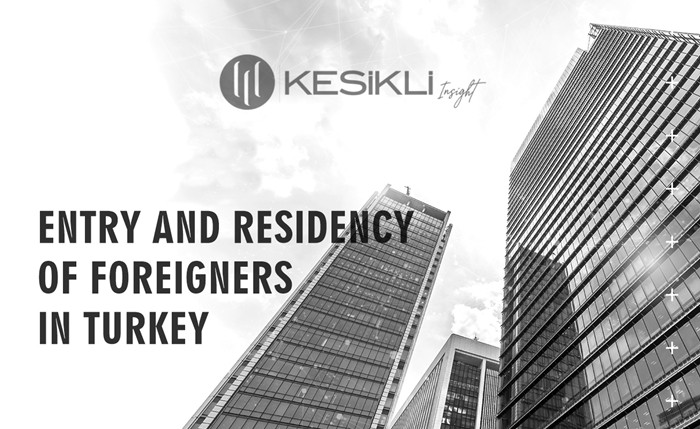ANNUAL REVIEW 2016 – TURKEY: REAL ESTATE
Kesikli Law Firm has been asked by Financier Worldwide to write the Annual Review – Real Estate 2016 – Turkey Chapter. All chapters, namely the United States, the United Kingdom, Germany, Switzerland, Turkey, Portugal, Russia, India, South Africa, are written by leading real estate law experts and industry specialists. You can send your name, company name, and e-mail address to info@omerkesikli.av.tr to receive all chapters free of charge.
Here is the Turkey Chapter:
Could you outline some of the major trends in the real estate space in your region over the last 12-18 months?
Kesikli: The real estate market in Turkey is promising, despite the impact of the recent political crisis and the instability in neighbouring countries. Offering ever-greater opportunities for investors every year, the Turkish real estate sector has come to prominence in the last decade. Turkey has an important geographical and geopolitical location connecting Asia to Europe. It is expected that the office demand will continue to increase due to the fact that multinational companies have been establishing their regional management and operational centres in Istanbul. After withdrawal of the reciprocity requirement for foreign buyers’ purchasing real estate in Turkey, the number of nationalities permitted to buy real estate in Turkey materially increased. The rule permitting only nationals of countries that had granted reciprocal rights to Turkish nationals to own real estate in those countries to purchase real estate in Turkey was abolished in 2012, which boosted the number of foreign purchases.
What particular risks and challenges are real estate players facing in today’s market? How are these factors impacting strategies?
Kesikli: Turkey, as an emerging market, needs to manage the risk of capital outflows to developed countries. Experts do not see a general emerging market crisis risk while some investors see these regions as politically unstable. In order to deal with the external debt problem, increased inflows of FDI are needed. Certain international players tend to direct their investments toward developed countries. Since its lower asset prices are still attractive, a significant portion of investors have not left the Turkish market. In the short term, many emerging markets may face high interest rates and structural challenges due to reverse capital flows. On the other hand, devaluation can boost competitiveness and decrease external deficits. Turkey is planning for the realisation of several mega infrastructure projects, which would have a substantial impact on the real estate market. Certain public-private partnership models have been introduced for the realisation of such projects, which would definitely require substantial foreign sourced finance. Instability in Turkey’s neighbourhood has put the Turkish economy under pressure and affected foreign investors’ appetite.
What factors are driving real estate M&A and investment in today’s market? Are there any segments or regions that seem to be offering a wealth of opportunities?
Kesikli: In terms of deal number and value, real estate has not been the most active sector both for local and foreign investors in Turkey. Core sectors such as energy, financial services and manufacturing have driven the M&A and investment climate in recent years. That said, those sectors do have an important effect on the real estate space, as the location and the required land for production have always been an important aspect of most investments.
In broad terms, how would you describe current valuations for real estate assets in your region? Is there a gap between buyer and seller price expectations in the current market?
Kesikli: The Capital Markets Board adopted international valuation standards and rules in 2006. Appraisal activities for real estate valuations are conducted by licensed professional companies subject to the regulations enacted for the banking sector and capital markets, in accordance with internationally accepted standards. While we do not think that there is a price bubble in the real estate market, two regions are considered as experiencing a bubble for valuation purposes. The first is Istanbul, which, as a landmark and a megacity, attracts the attention of investors from all over the world. With its aim to become a financial centre, completed construction works are more visible in Istanbul. Major urban renewal and development projects, such as Third Bridge, Kanal Istanbul and the third airport, transport people in and around Istanbul. These have been some of the drivers that led to Istanbul’s housing market seeing a 64.8 percent rise between 2011 and 2015. The second region includes the cities of Gaziantep, Kilis and Adiyaman, which have experienced a 50.79 percent population increase over the same period due to housing demand from Syrian and Iraqi refugees.
Managing risk and identifying value are fundamental parts of the acquisition and investment process. In your experience, is enough due diligence being conducted in today’s real estate deals?
Kesikli: After the enactment of a series of laws and regulations reforming the Turkish banking sector as of 2001, due diligence services are conducted in a more sophisticated, serious and cautious manner. Companies are paying more attention to due diligence activities and conduct detailed investigations of properties, their legal status and market values. The title registry is open to the public and the land registry system is recognised as trustworthy and safe.
What kinds of transaction structures and investment vehicles are real estate players using to execute deals and optimise their long-term returns?
Kesikli: Historically, the Turkish real estate industry can be defined as an equity-driven market due to the traditional high inflation and high interest rate policies for the period ending in 2002. Following modernisation and the thorough regulation of the banking environment, debt financing has become a more common structure for local and foreign players with favourable interest rates. Real estate players usually utilise real estate to raise debt financing through mortgages, sale and leaseback transactions. While corporate bonds are used, Islamic financing structures are becoming more popular. The most common financing model for property acquisitions by individual purchasers is mortgage financing. Fixed rate and floating rate loans are available. The allure of the Turkish real estate market attracts international lenders, enabling project finance deals to be concluded for a significant number of real estate acquisition and development projects, as well as refinancing structures on a limited or non-recourse basis.
What issues and developments do you believe will shape the real estate market in your region over the months and years ahead?
Kesikli: Turkey aims to become a manufacturing and export base in the Eurasia region, which will drive demand for industrial buildings and warehouses. The need to renew existing buildings given Turkey’s risky location on a seismic belt, will continue to increase with demand for new housing. In the long term, increasing disposable income and discretionary spending will transform the retail market. Increased manufacturing activity and trade volume drive a need for a better logistics infrastructure. Companies that are interested in accessing the MENA region will need high quality industrial buildings and warehouses. With its large and increasing population of 76.6 million, and its strategic location with access to multiple markets home to 1.5 billion people, Turkey is an attractive market for foreign investors to establish manufacturing facilities or warehouses. As a solution to the financing problems in the real estate sector, we believe that using real estate certificates as a financial instrument for financing the real estate investments or renewing collective housing should be considered. Real estate certificates give individuals the chance to buy square basis shares of housing projects traded in the exchange market. Those shares can either be monetised, or, depending on the share percentage in hand, housing can be owned when the project is completed. If the real estate certificate model is applied appropriately, benefits of the model will be seen – especially in ‘urban renewal’ projects, with the state treasury guarantee. Promoting this financial instrument could create a market with vibrant demand and a sector able to meet its funding expectations at a reasonable cost.
Let's Get Connected!



